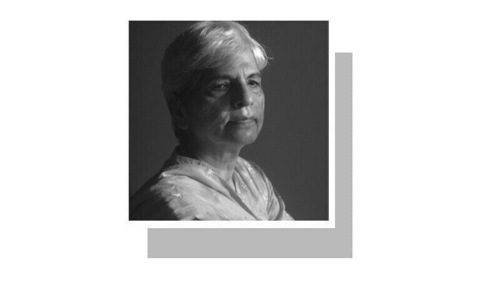KARACHI: A sessions court sentenced a man to 12-year imprisonment on Tuesday in a drug trafficking case.
Additional District and Sessions Judge Liaqat Ali Khoso, who is also the presiding officer of the Special Court Control of Narcotics Substances (Malir), found the accused, Muhammad Arsalan, guilty of trafficking over one kilogram of charas within the remits of Steel Town police station.
In his detailed verdict, the judge observed: “The accused was found in possession of recovered drugs and promptly brought at PS, after arrest, recovery and sealing of the property at the spot, and lodged such FIR. The magnitude of the offence is not a normal crime, hence minor contradictions and technicalities would not be considered to be grounds for acquittal of accused.”
The court also imposed a Rs300,000 fine on the convict and in case of default, he would have to undergo additional imprisonment for three months.
According to state prosecutor Riaz Ali Soomro, in January, a police patrol received information about a drug trafficker. Acting on a tip-off, the police apprehended the accused during a snap check near Gulshan-i-Hadeed and recovered 1,100 grams of charas wrapped in yellow solution tape.
During the trial, prosecutor Soomro highlighted the rising drug menace in Karachi, particularly in the Malir district, and stressed that offences under the CNS Act, 1997, should be dealt with ‘an iron hand’. He emphasised that acquitting the accused on mere technical grounds would undermine the criminal justice system and the purpose of the CNS Act, 1997.
He argued that in drug cases, such minor contradictions could not be resolved in favour of the accused. He stated that under Section 29 of the CNS Act, 1997, the prosecution had successfully proven the possession of narcotic substances as being in the exclusive, vigilant, and conscious possession of the accused.
He added that safe custody and transmission were established by the prosecution through the presentation of all relevant documents and witnesses. He also noted that the full test protocols were mentioned in the chemical report, which returned a positive result. Prosecutor Soomro also argued that the presumption of innocence did not apply when the prosecution had proven its case.
But the defence counsel for the accused argued that there were major contradictions in the evidence and that safe custody had not been proven. He further stated that the documents produced by the prosecution were manipulated and false.
Published in Dawn, August 7th, 2024










































